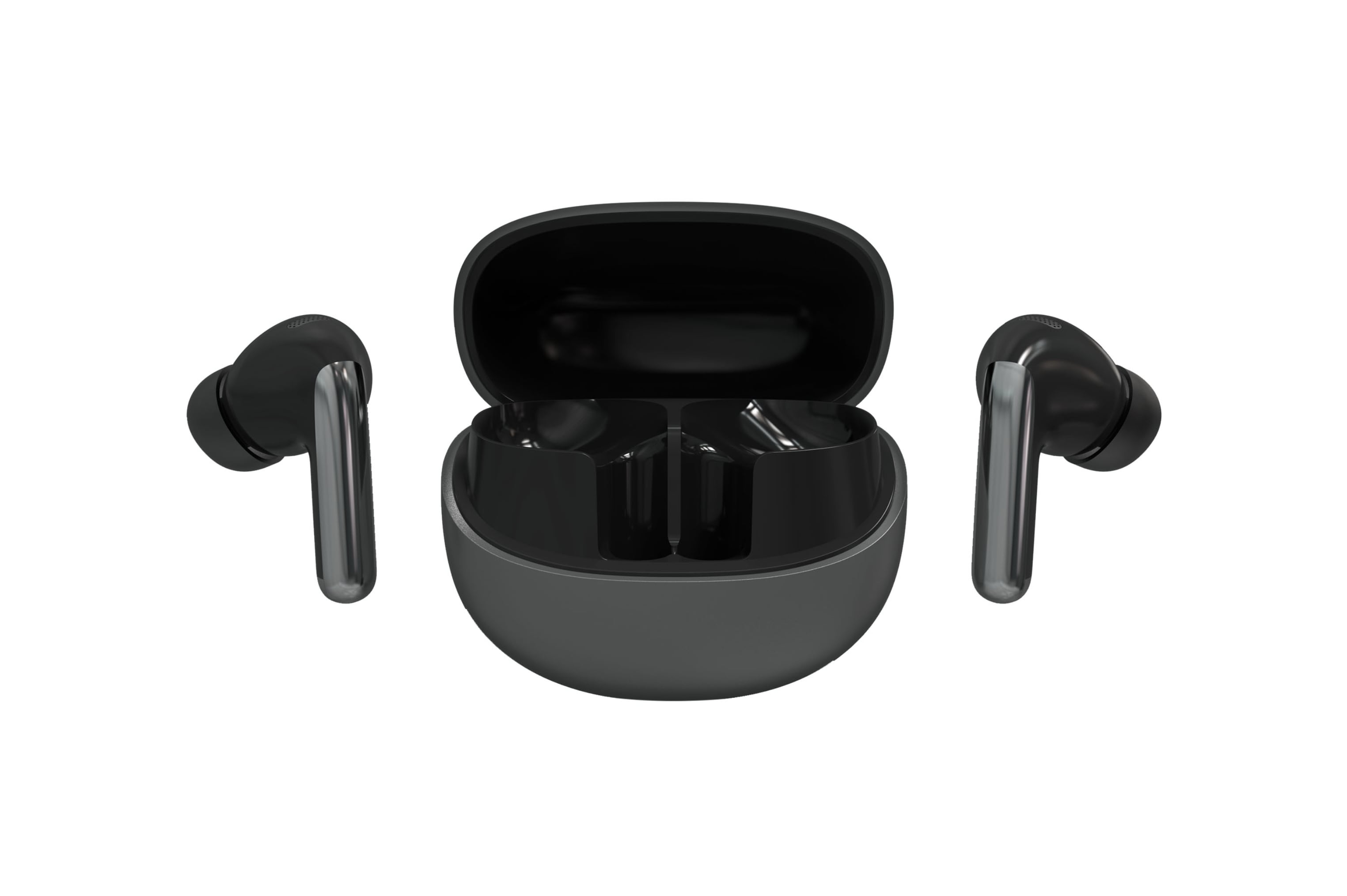Music has accompanied humanity since its earliest days, fulfilling roles ranging from artistic expression to therapeutic and social functions. Music’s ability to evoke emotions and change our mood is undeniable, and in recent decades, scientists have managed to decipher some of the mechanisms by which music affects our brain and, consequently, our emotional well-being. In this article, we will explore how different types of music influence emotional state, how they are used in therapeutic settings, and how high-quality sound, such as that of Vieta Pro technology, can enhance these benefits to significantly improve our quality of life.
The connection between music and the brain
Music has the power to activate multiple areas of the brain simultaneously. Neuroimaging studies have shown that rhythm and melody are processed in the brain through areas such as the auditory cortex, the limbic system and the cerebellum. Rhythm processing, for example, is closely linked to the cerebellum, which is also involved in motor coordination. Melody and harmony, on the other hand, activate the auditory cortex and parts of the brain that are related to pleasure, including the nucleus accumbens. Furthermore, emotional responses are managed by the limbic system, which explains why music can induce such intense emotions.
In addition, music can influence brain plasticity, especially in people who learn to play an instrument. Musicians show greater neural connections in areas related to hand-ear coordination, memory, and auditory perception. All of this highlights how music not only entertains us, but has a profound impact on the way our brains are structured and respond to the world.
Dopamine and serotonin
The music we enjoy has the ability to release dopamine, a neurotransmitter associated with reward and pleasure. In a study conducted by researchers at the Montreal Neurological Institute, it was discovered that participants who listened to their favourite songs experienced a significant increase in dopamine levels. This explains why listening to our favourite music makes us feel so good: the brain rewards it in the same way it would other pleasurable activities, such as eating or exercising.
Serotonin also plays a key role, especially with music that has a relaxing tone, such as classical music or ambient sounds. The release of serotonin is linked to a decrease in anxiety levels and an increase in the state of relaxation, suggesting that music may be an effective tool for inducing positive emotional states and reducing negative ones, such as stress or sadness.
Functional magnetic resonance imaging (fMRI) studies
Using fMRI, scientists have been able to identify which parts of the brain respond to music and how these responses vary depending on the type of music and the person’s emotional state. For example, listening to music with a fast beat has been found to activate areas related to energy and motivation, such as the motor cortex. On the other hand, slow, relaxing music tends to activate areas associated with calm and rest, such as the prefrontal cortex. This ability of music to activate different brain regions makes it an incredibly versatile tool for mood management.
Different types of music and their emotional impact
Classical music and relaxation
Classical music, especially from composers such as Bach, Mozart, and Beethoven, has a remarkable ability to induce a state of relaxation. This is due, in part, to its orderly structure and lack of lyrics, which allows the brain to focus on rhythm and harmony without the need to process verbal messages. Listening to classical music has been shown to reduce levels of cortisol, the stress hormone, and promote activity in the parasympathetic nervous system, which is responsible for relaxation and recovery. A study conducted at Stanford University found that participants who listened to classical music showed a significant reduction in anxiety and an increase in attention and concentration. These qualities make classical music an effective tool for improving focus in work environments or for relaxing at the end of the day.
Rock and emotional energy
Rock music is known for its strong rhythms and powerful guitars that generate an intense emotional reaction, increasing energy levels and helping to channel emotions such as frustration or anger in a constructive way. Bands such as AC/DC and Queen have been used in studies to measure the impact of rock music on adrenaline and motivation. Results have shown that listening to rock music can temporarily increase heart rate and blood pressure, which creates an energy boost. Rock music also has a liberating element, and many people report that listening to rock music helps them feel more empowered and releases pent-up stress.
Pop music and its social impact
Pop music has a particular quality that makes it especially appealing to the vast majority of people: its simplicity and tendency to use catchy lyrics and easy-to-remember rhythms. This makes it a social phenomenon, as pop songs are often designed to be enjoyed in groups, whether at parties or social events. Experts point out that this social connection increases the production of oxytocin, also known as the love hormone, which strengthens social bonds and the feeling of belonging to a group. Listening to pop music can motivate us, help us feel connected, and improve our mood through the feeling of community.
Music as a therapeutic tool
Psychologists and neurologists have shared their views on how music can be an emotional catalyst. Dr. Oliver Sacks, in his book Musicophilia , recounts how patients with neurological diseases, such as Parkinson's, experience a marked improvement in their mobility when listening to music with a steady beat. Sacks describes how, in some cases, music is the only thing capable of connecting these patients with their emotions and helping them to express themselves, which underlines the importance of music in the treatment of mental conditions.
The American Music Therapy Association (AMTA) has reported numerous success stories where patients with depression have shown significant improvements in their mood thanks to regular music therapy sessions.
Among the most notable cases is that of patients suffering from Alzheimer's. Studies in nursing homes have shown that when patients are played music from their youth, they seem to "wake up." From being in a state of deep disconnection, they begin to talk, sing, and even dance. Music seems to act as a bridge to memories that would otherwise be inaccessible due to the disease.
Conclusion: Music as an Ally in Our Emotional Well-being
Music has immense power to influence our mood, our emotions, and even our cognitive abilities. Throughout this article, we have explored how different types of music can relax us, energize us, connect us with others, or help us deal with difficult situations. Scientific research and expert opinions agree that music is more than just entertainment: it is a powerful tool to improve our mental and emotional well-being.
But to make the most of these benefits, sound quality is essential. Listening to music through low-quality speakers is not the same as immersing yourself in the detailed, immersive sound provided by high-fidelity devices. This is where Vieta Pro comes in, a brand committed to offering a sound experience that goes beyond the ordinary. Vieta Pro headphones and speakers are designed to capture every nuance, every vibration and every detail of the music, allowing the listener to feel the music in a more vivid and direct way.
When you listen to music with high-quality devices, such as Vieta Pro, the positive impact of music on the brain is maximized. From the deep relaxation induced by classical music to the release of energy with rock, Vieta Pro allows you to feel every note clearly, transporting you to an emotional state where sounds are not just heard, but lived and fully experienced.
So, if you want to turn music into a real ally to improve your emotional well-being, don't underestimate the power of sound quality. Vieta Pro headphones and speakers will allow you to fully immerse yourself in the melodies, make each song an immersive experience and make the most of the benefits that music has to offer. Because sound, when heard in the best quality, has the power to change our lives, and Vieta Pro is here to help you achieve that optimal sound experience that you so deserve.





Leave a comment
This site is protected by hCaptcha and the hCaptcha Privacy Policy and Terms of Service apply.